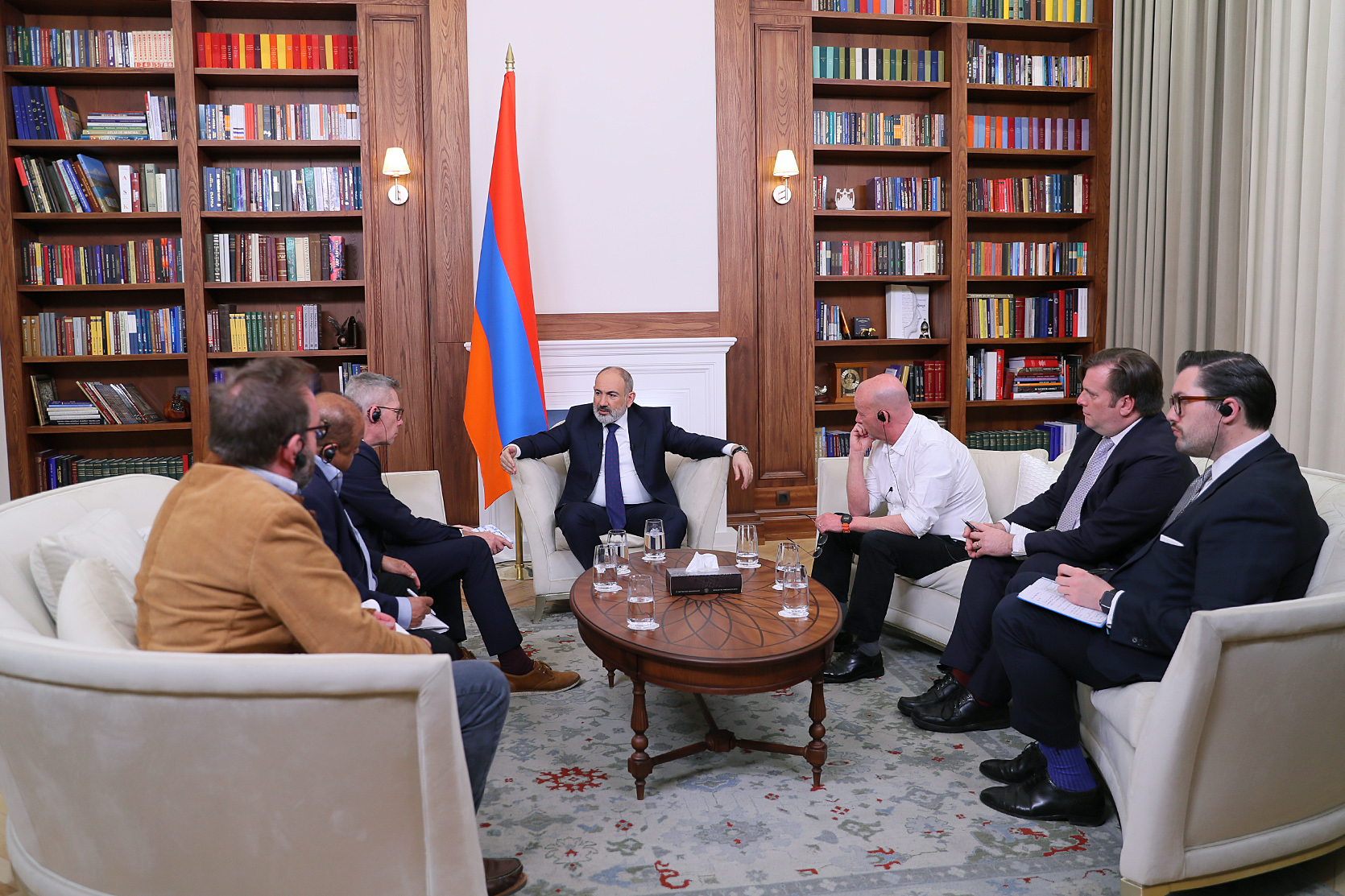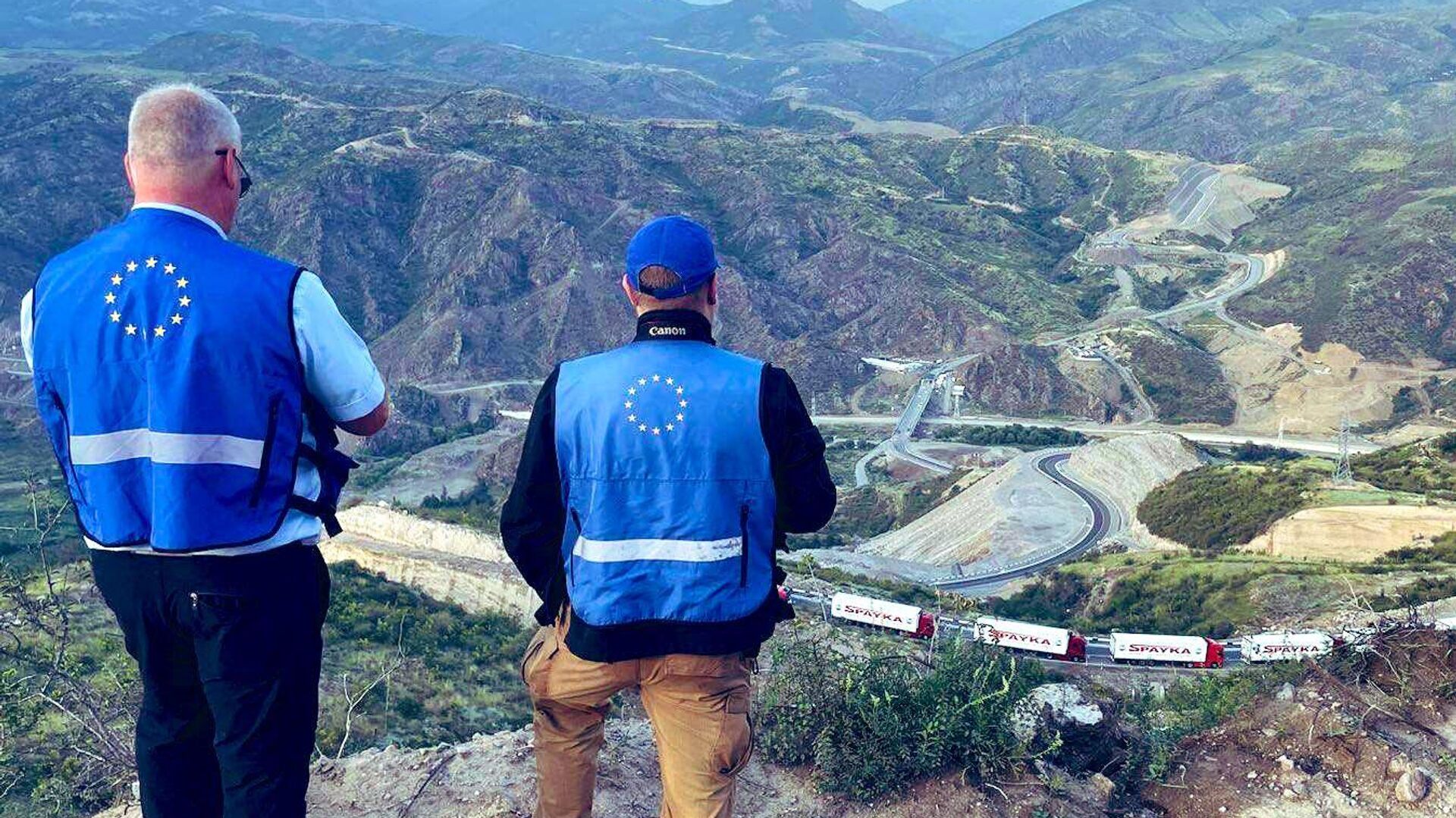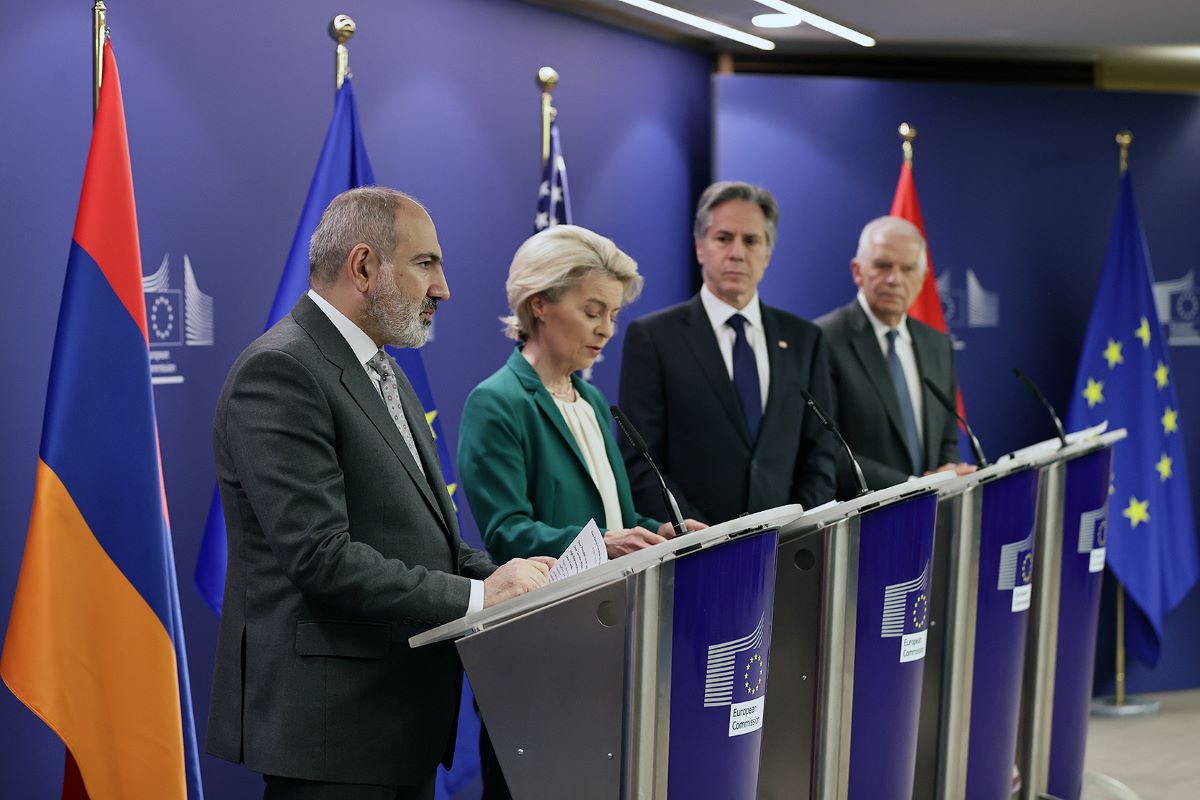"EU won't fuel Yerevan's false hopes". Opinion
Armenia and EU
The EU‘s civilian observer mission, patrolling the Armenia border, has opened an office in Yerevan. The “liaison and support office will enhance the mission’s mandate by strengthening cooperation with local and international partners in the capital.”
This observer mission is the primary security achievement in Armenia-EU relations, according to international relations and security expert Sossi Tatikyan.
“It’s a soft deterrent against Azerbaijan‘s creeping annexation and potential military aggression. Without this mission, Armenia would have lost more territory by now,” she said.
- “Armenia is Europe, period”: Discussion on Euro-Integration in Parliament
- “Is the West offering Armenia an insufficient proposal instead of genuine support?” Opinion
- Peter Stano: “The EU can assist Armenia, but it will not impose solutions”
EU observer mission opens an office in Yerevan
The EU observer mission has opened another office, this time in Yerevan, located in the Armenia Marriott Hotel. Previously, six offices were established in the regions, in the cities of Yeghegnadzor, Jermuk, Martuni, Ijevan, Goris, and Kapan.
Markus Ritter, head of the EU mission in Armenia, emphasized that the new office will not only serve as a workplace for staff but also “facilitate information exchange and coordination with stakeholders in Yerevan for the successful implementation of the mission’s mandate.”
The observer mission began its operations on the Armenia-Azerbaijan border on February 20, 2023. It includes 132 representatives from 23 EU member states. Since then, the observers have conducted over 2,300 patrols. The mandate of the civilian mission is set for two years, until February 2025, with the possibility of extension before its expiration.
Commentary
The European Union does not want to instill false illusions that “it will come to save Armenians in the event of an attack by Azerbaijan,” says Sossi Tatikyan, an expert on international relations and security issues. She emphasizes that the deployment of the EU observer mission was the most that European partners “could do for us” to prevent a new war:
“Another important step would be to provide peace support tools and appropriate [security] funding. Although Hungary creates problems in this regard.”
EU High Representative for Foreign Affairs Josep Borrell spoke back in 2023 about “possible support for Armenia within the framework of the European Peace Facility.” It is an instrument through which Brussels provides funds to non-EU countries to improve their defense capabilities, prevent conflicts and promote peace. Through this mechanism, the EU supported Ukraine, Georgia and Moldova. Armenian experts often say that it is Hungary that opposes the provision of this instrument to Armenia.
Tatikyan emphasized that there are other EU members who are “supporters of Baku, as they receive gas from Azerbaijan.” However, she hopes that consensus on this issue will still be reached, and this will allow Armenia to receive EU assistance.
She also said that the European Union does not want a new war in the South Caucasus, it is already “burdened” with military actions in Ukraine and is trying to manage the situation created as a result of the Russian-Ukrainian war.
In her opinion, the EU is trying to balance between its commitment to democracy and human rights, on the one hand, and geopolitical interests, on the other. An important argument in this chain, according to the expert, is the energy security of the union member countries:
“To ensure their energy security and reduce dependence on Russia, the European Union has concluded energy agreements with Azerbaijan and the authoritarian Gulf countries.”
According to the expert, Armenia’s desire to join the European Union is more than obvious:
“The EU is negotiating with our government regarding Armenia’s membership so that our population does not develop false expectations and the opinion that a year after submitting an application for membership, Armenia will easily become a full member of the organization.”
She warns that this is a long and difficult process. And Armenia needs to make efforts to meet the requirements regarding democracy, human rights and other important standards. In addition, a prerequisite for a country applying for membership is the requirement “not to have a conflict with its neighbors.”
The expert also recalled another factor, the country’s economy, which is currently closely connected with Russia and the Eurasian Economic Union operating under its auspices:
“If Armenia leaves the EAEU right now, the Armenian economy will instantly collapse. The transition should be gradual. On this path, the European Union must help us by providing certain quotas and advantages in order to direct our market step by step from the EAEU to the EU.”





















